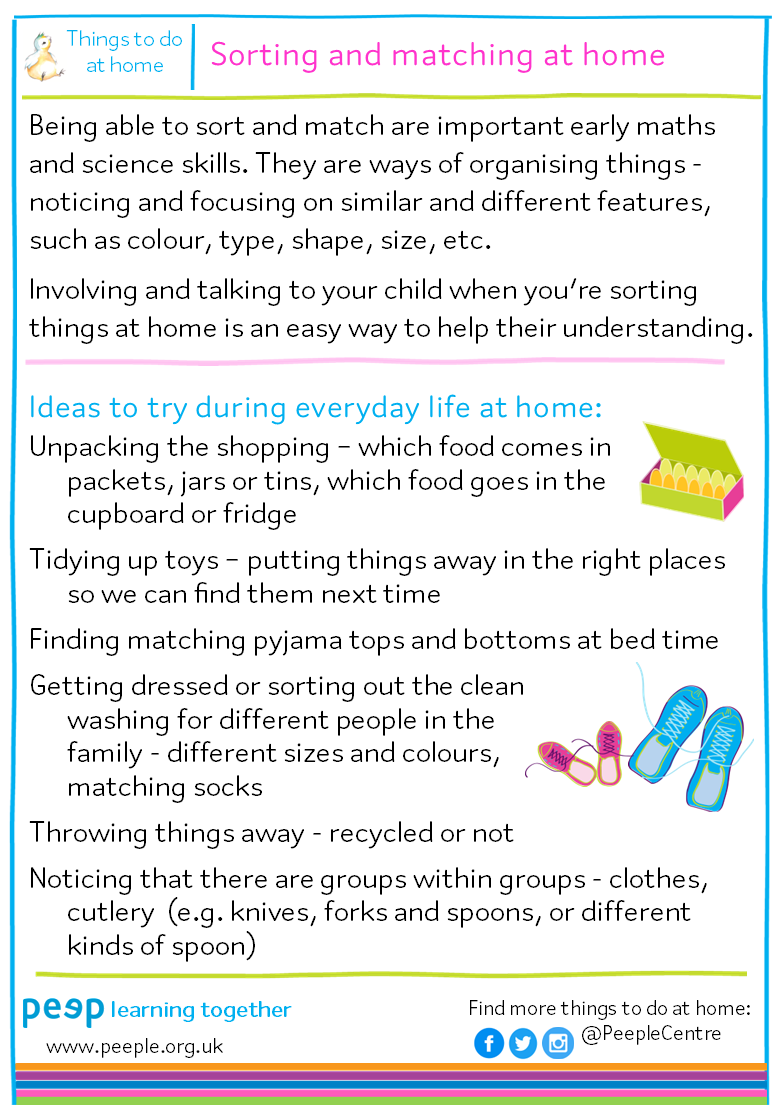Green
Blog: Everyday play with free, everyday things
Have you ever found that your child is more interested in the box that a toy came in, than the toy itself? It’s a common theme! When we think of toys for children to play with, we often think of shop-bought toys that ‘do’ something, but young children have an inborn curiosity which means that exploring everyday objects is just as exciting to them.
Play develops important life skills like talking and listening, and social skills including learning to share and take turns, as well as confidence. Playing with our children is a fantastic investment of our time as parents, as it also helps deepen bonds and feelings of security.
Children love exploratory play, experimenting with physical objects from the world around them, and when we harness this curiosity together, it might surprise you what fun you can have. Below is a list of some everyday objects and ideas for how they can be used in play - all these things are free or can often be found around the home. If you don’t have the suggested item just swap it for something you do have. The most important thing is having fun!
play ideas for everyday objects:
Towel: den, trampoline for bouncing soft toys up and down, picnic blanket for a teddy bears picnic, duvet for sleepy dolly, cape for a superhero, peekaboo, tug of war.
Plastic milk carton: watering can (make holes in the lid), shaker, measuring jug for water play/ bath time, plant pot (cut the top half off), house for small world play (cut a door in the side)
Colander: drum, water play, story prop (makes a great space helmet!), post box for dry spaghetti developing small finger movements (fine motor skills).
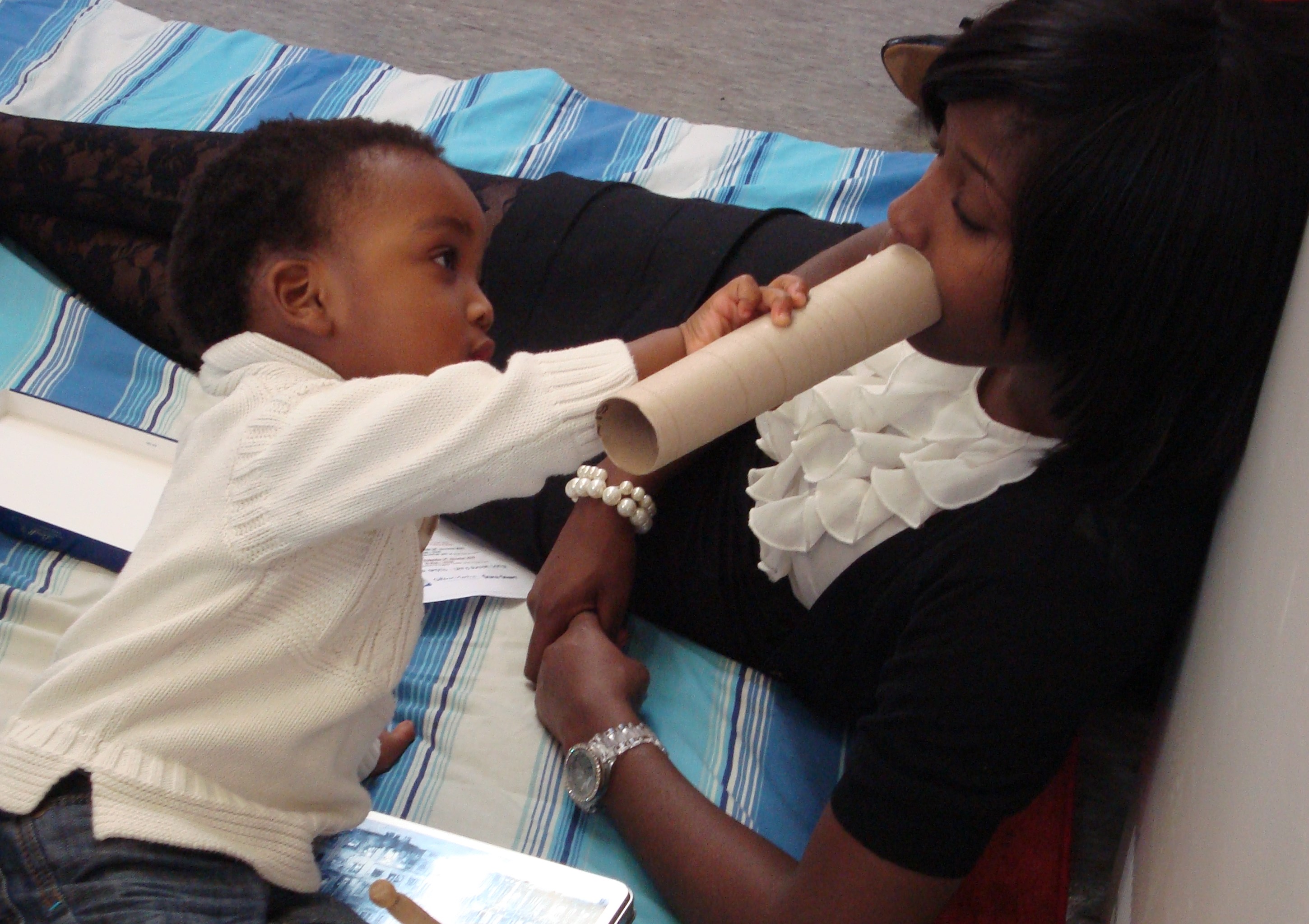 Kitchen rolls or toilet rolls: telescope or binoculars (stick two together), car park for miniature cars, megaphone (sorry parents!), tunnel, bandage for teddy’s sore arm.
Kitchen rolls or toilet rolls: telescope or binoculars (stick two together), car park for miniature cars, megaphone (sorry parents!), tunnel, bandage for teddy’s sore arm.
Egg carton: treasure chest, seedling planter, colour sorter, paint tray, building blocks.
Leaves: leaf rubbings, sensory play (crunching), colour sorting, small world hide and seek, paint stencil, outdoor pictures and nature art.
Laundry basket or big box: goal for paired up socks, vehicle (racing car, speed boat, carriage), ball pit, reading nook (add favourite books and blankets for extra cosiness).
nursery rhyme props:
Grand Old Duke of York: bang on a pan or empty box with a spoon (or hands) for the marching beat
Row, Row, Row Your Boat: sit opposite your child and use a scarf or a towel to pull each other back and forth
Zoom, Zoom Zoom, We're Going to the Moon: a colander on the head makes for a great intergalactic helmet!
London Bridge is Falling Down: build with cushions, egg boxes or empty margarine tubs…and enjoy knocking them down!
Whilst exploring these objects, your child will also be developing their early science and maths thinking and skills, even before they have the words to describe what they’re doing. It’s fascinating! It’s always worth keeping in mind, this year more than ever, that children don’t care how much toys cost, it’s your love and attention that mean the most to them.
Feature box colour:
Side Quote Color:
growing minds project
Growing Minds is an ambitious, collaborative project, bringing together experienced organisations and tried-and-tested interventions to improve school readiness and support young children’s life chances. It is led by a partnership of third sector organisations in Oxfordshire: Peeple, Home-Start Oxford and the Berin Centre. Growing Minds was made possible by Our Common Good and is supported by a consortium of donors.
Watch our Growing Minds video to find out more:
Oxfordshire Community Foundation created the Growing Minds project, launching it in Littlemore and Berinsfield, two income-deprived communities in Oxfordshire, in January 2020. The project was working with 277 families in these two areas by April 2022, when it handed over leadership to the three organisations mentioned above, who had been involved from the start. Growing Minds services for families are delivered by established local service providers from education, health and family support. It is now a well-known and valued service in both areas, with 433 children involved by April 2024.
Growing Mind’s birth to school pathway illustrates the joined-up approach to working with families with babies and children under five. It includes:
- 60 free book for each child to keep, delivered once a month from birth to age five, via the Dolly Parton Imagination Library - here's more about our local Growing Minds and Peeple Imagination Library. This has helped not only to engage new families, but to support their confidence and enjoyment in sharing books. All families surveyed reported doing this on a weekly or daily basis. Growing Minds families had received a total of 11,896 Imagination Library books by April 2024.
- Sharing initial information with families via people and services that they already have contact with, such as midwives, birth registrars, nursery nurses and health visitors.
- Developing responsive and flexible relationships with families, ensuring that their most urgent and basic needs are focused on first. The extraordinary pressures that families have faced during the pandemic led to an increased need for both financial and mental health support. HomeStart Oxford visit families at home and develop trusting relationships, offering practical support, as well as signposting them to specialist support services and/or other community groups.
- Peep Learning Together sessions – incorporated into groups, home visits and/or Stay and Play sessions, for parents and carers with their babies or young children. The Peep sessions share information and ideas with families that support their child’s learning in day-to-day life. 92% of the parents surveyed reported doing more things with their child that they learned about in the sessions, and 91% felt more confident supporting their child’s learning and development after attending groups. Another important aspect is the further strengthening of relationships – with practitioners in their local communities where sessions are held (such as the Family Centre/ Hub, church, pre-school and school, which can include transition/ school-ready sessions), and also with other families, providing on-going friendship and support for each other.
- Staying in touch between face-to-face sessions, via online newsletters, WhatsApp groups and a closed Growing Minds Facebook group for each area.
using the growing minds model in other areas
The model could also be rolled out in other areas of Oxfordshire and beyond. The flexible and collaborative approach has enabled the project to adapt to the various challenges of the pandemic and social distancing.
The key elements that would enable it to successfully be used elsewhere are:
- A preventative, early intervention approach – conversations starting at or before birth, and sharing tangible resources
- Evidence-based interventions – Imagination Library books, Peep Learning Together groups, one-to-one support for more intensive or tailored assistance when required
- A collaborative, local community, partnership approach – building on and extending existing relationships with and between services, professionals and families, from birth.
> Find out more: Evaluation summary of the Impact and Reach of the Growing Minds Project
growing minds
education, health and family support collaborative community project
Feature box colour:

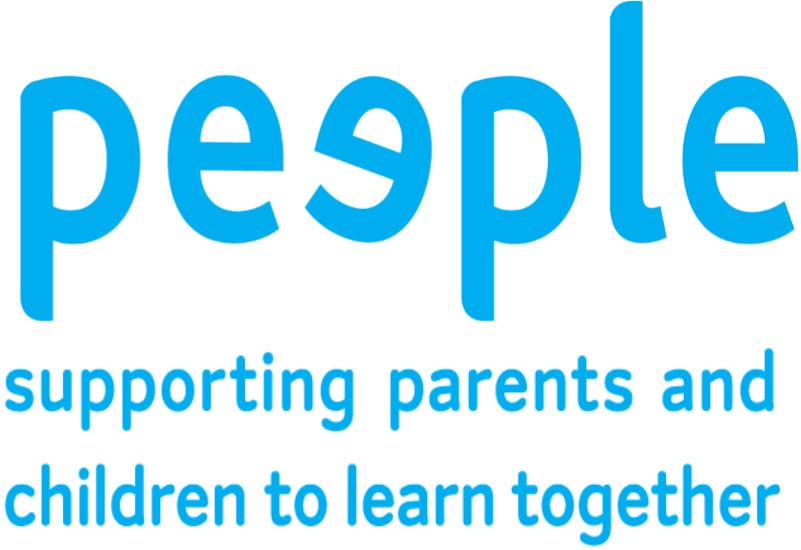
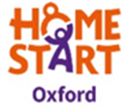


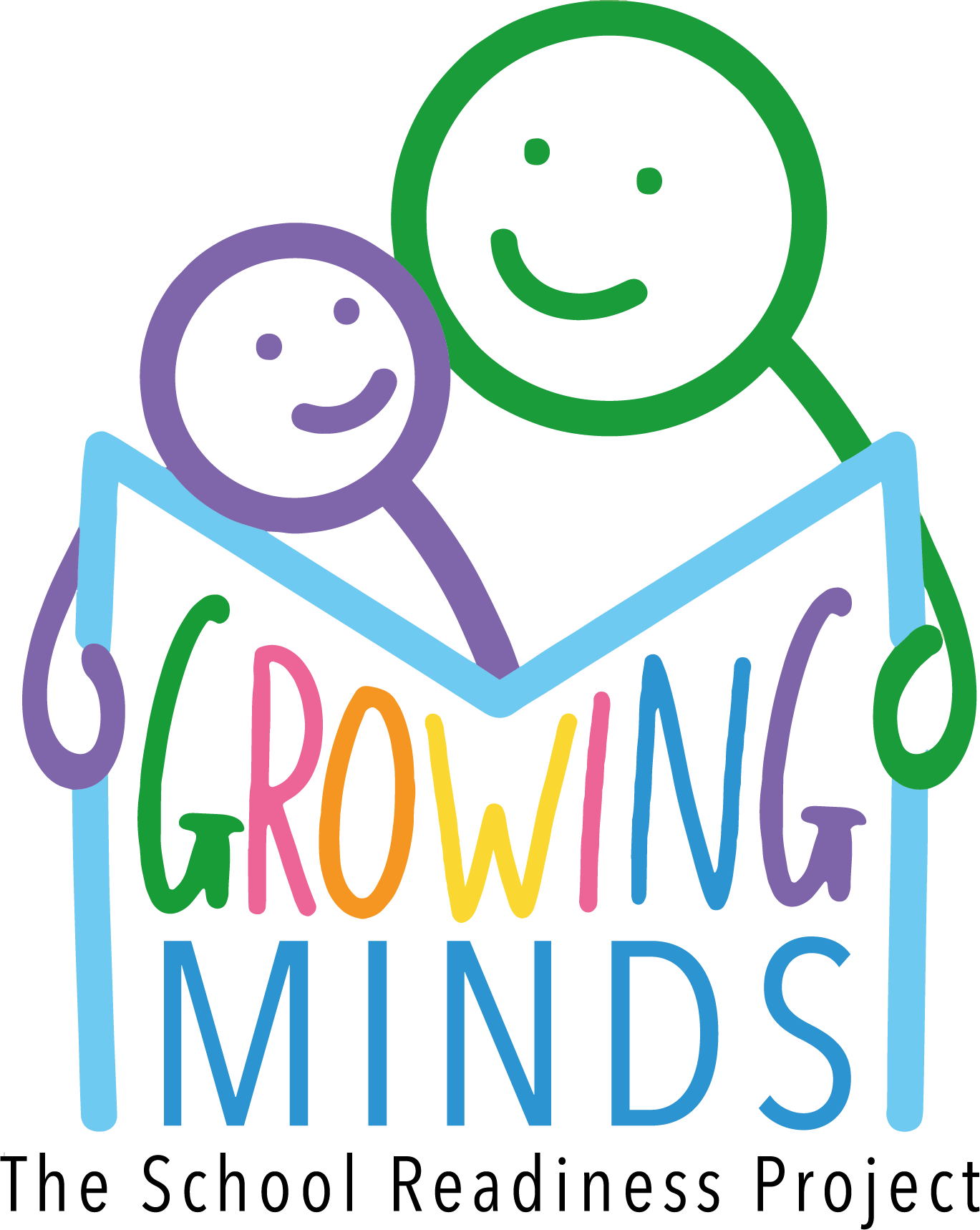
Side Quote Color:
Playdough recipe
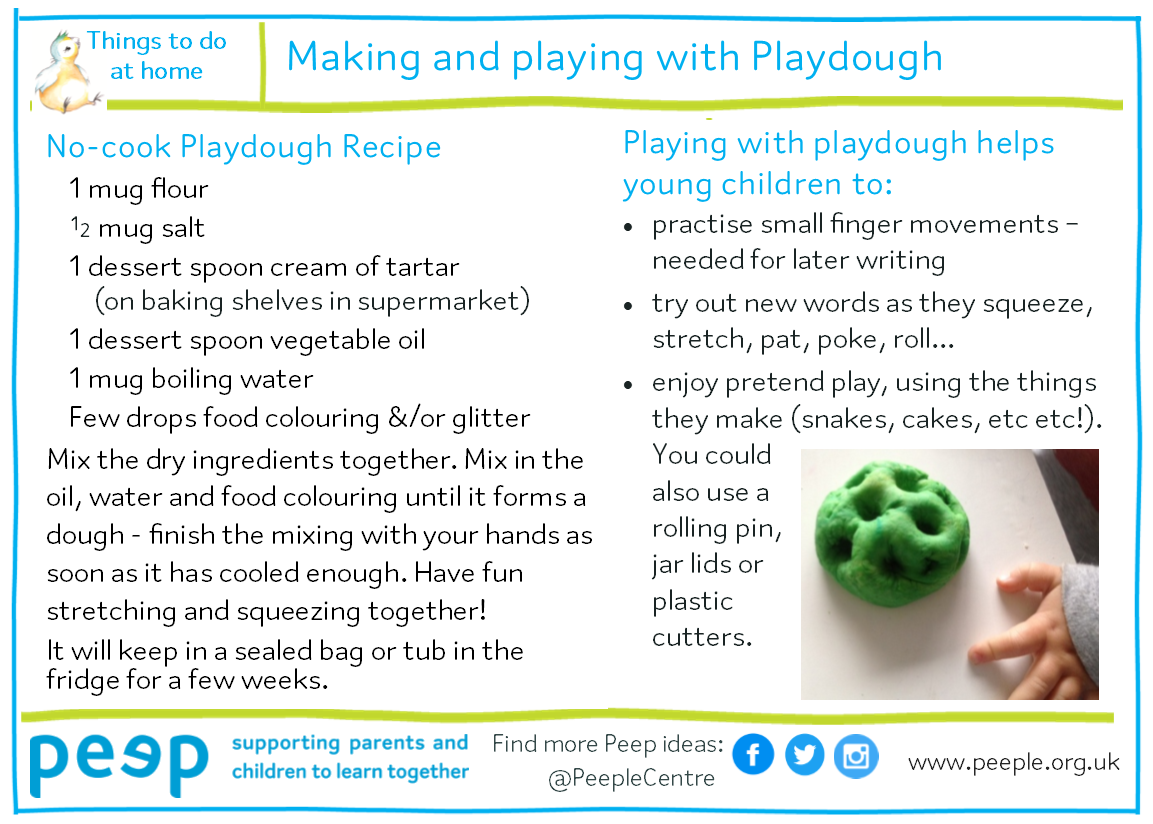
Feature box colour:
Side Quote Color:
START project: toddlers with a connection to autism or ADHD
The START programme was developed for toddlers with a connection to autism or ADHD. Research indicates that they may benefit from additional support to promote the development of strong thinking, attention and regulation skills that enable us to control our impulses, think flexibly to solve problems, and set and work towards goals. The programme was developed by Dr Alexandra Hendry (a developmental psychologist at the University of Oxford) in collaboration with Peeple.
The START team are now recruiting families with a child born between April - October 2022.
Find out more, and sign up to take part: www.startproject.info email: start@psy.ox.ac.uk or tel 07310 876421
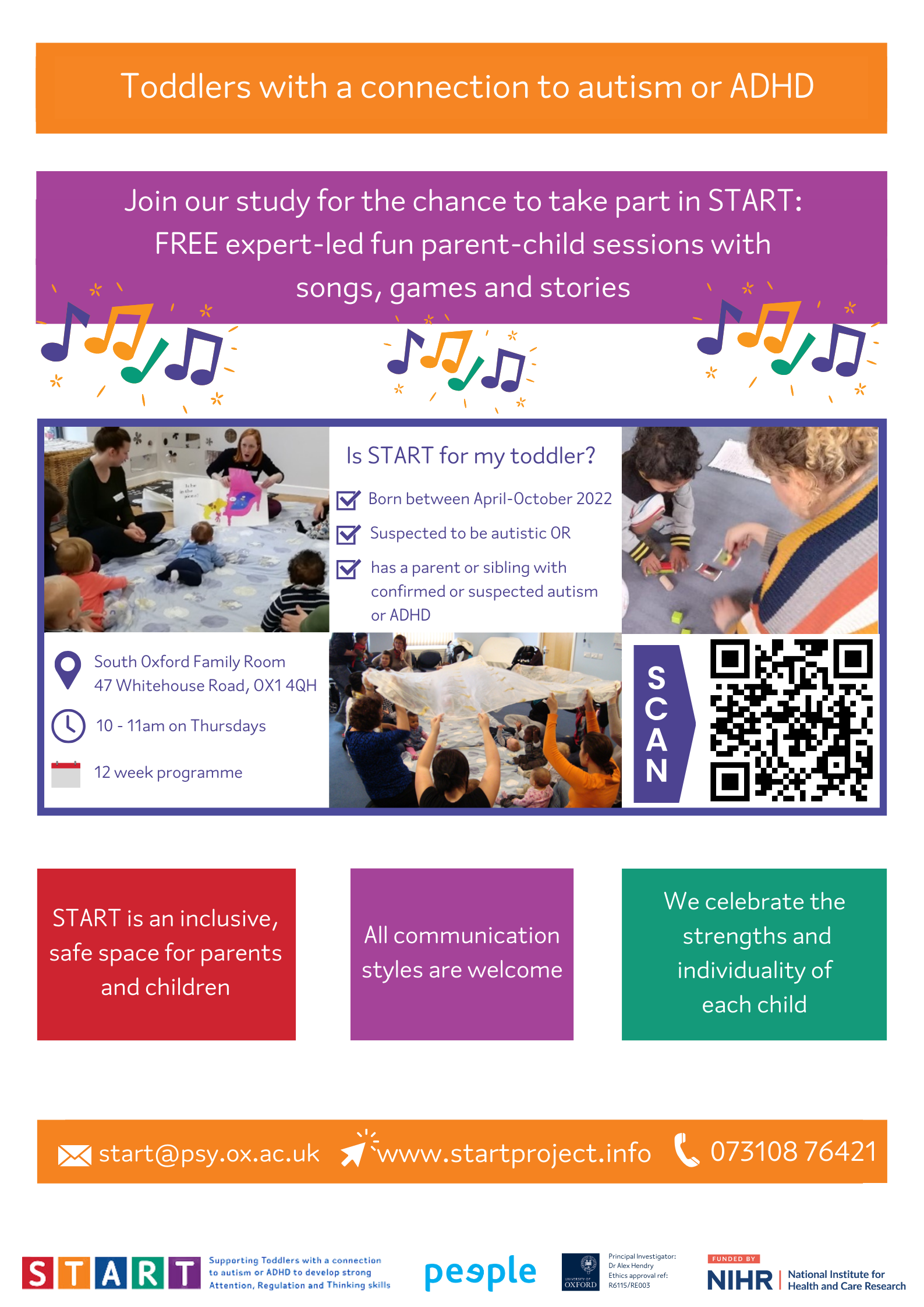
Feature box colour:
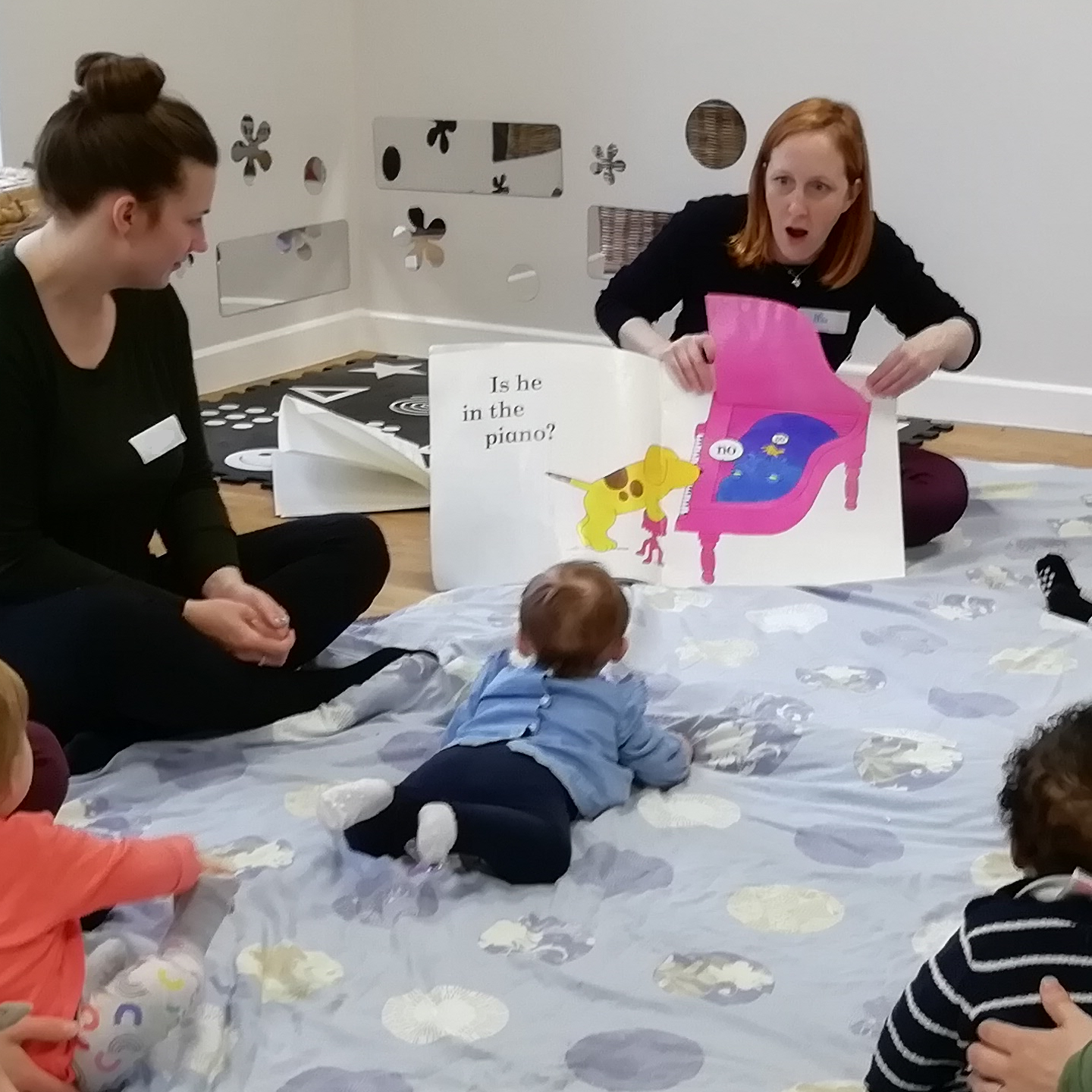
Side Quote Color:
6 ideas for playing outside
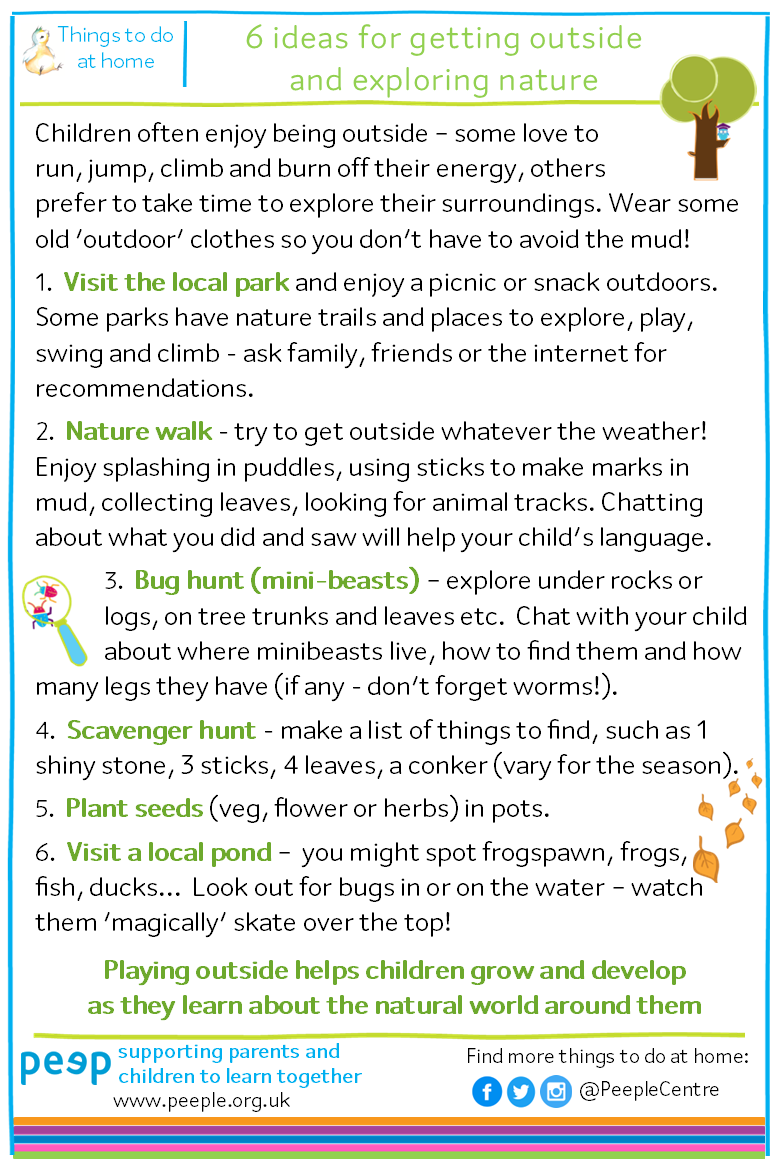
Feature box colour:
Side Quote Color:
outdoor peep for families
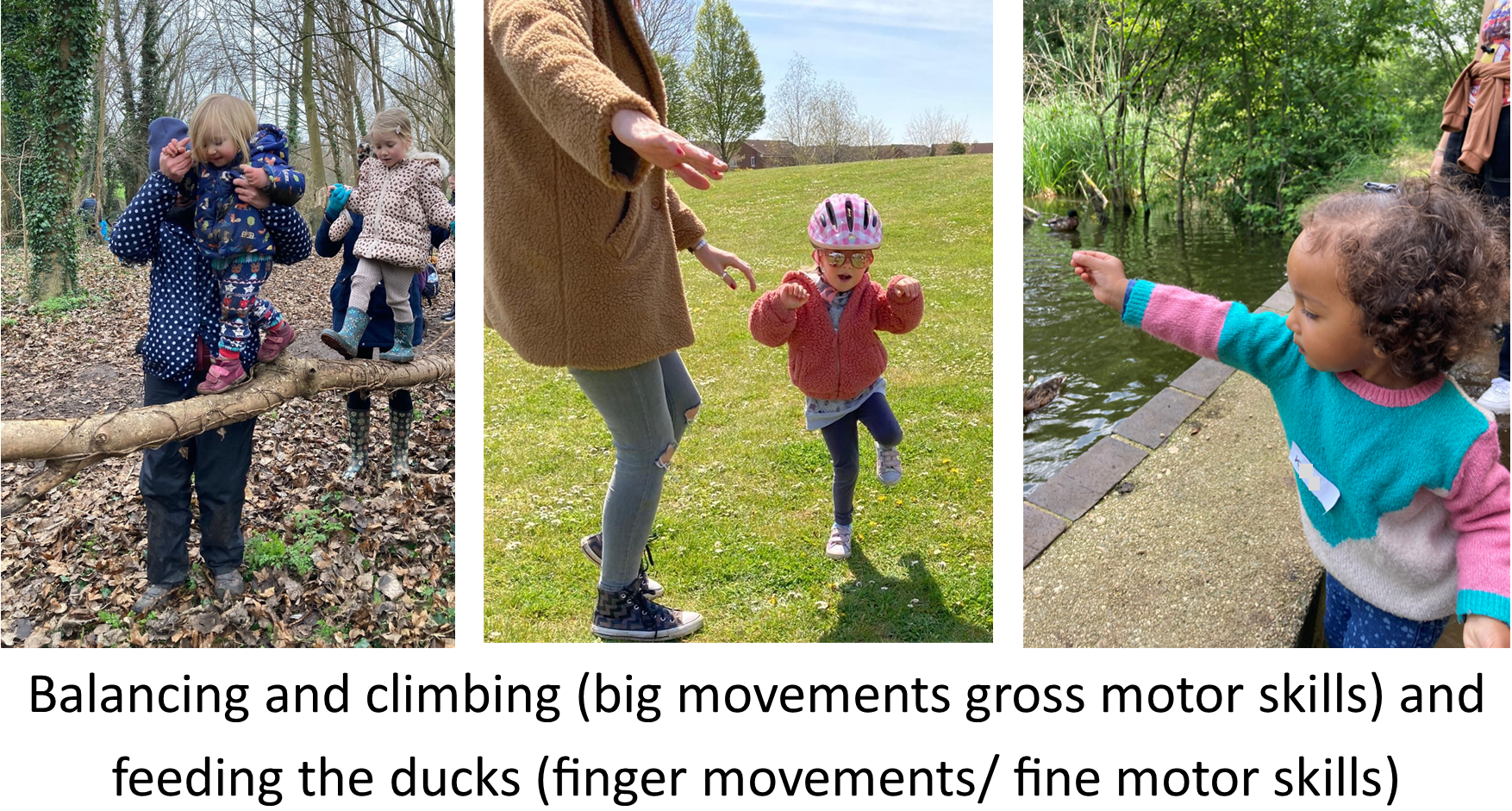
Playing or exploring outside with babies and young children is fun, even when it's cold and damp - getting out the door is often the hardest bit! It's also good for our own mental health, and provides lots of learning opportunities. Going to Outdoor Peep sessions combines meeting other families with reduced Covid risk. Exploring outside helps children to learn to manage risks, by developing their co-ordination, strength and problem-solving skills.
Below are some photos of families at Outdoor Peep, in summer and winter. They can be held anywhere outside, such as a local park or woods, or in the garden of a nursery or family/ children's centre. Contact your local Family Information Service, children's/ family centre or early years setting, to see if they have Peep-trained staff and do Peep sessions.
Here are a few outdoor play ideas from our colleague Helen, chatting with Nigel Clarke (CBeebies' The Baby Club and The Toddler Club) on his Dadvengers podcast and blog.
And here are 6 ideas for playing outside - lots more outdoor play ideas on our 'Peep tips and activity ideas for you and your child'.
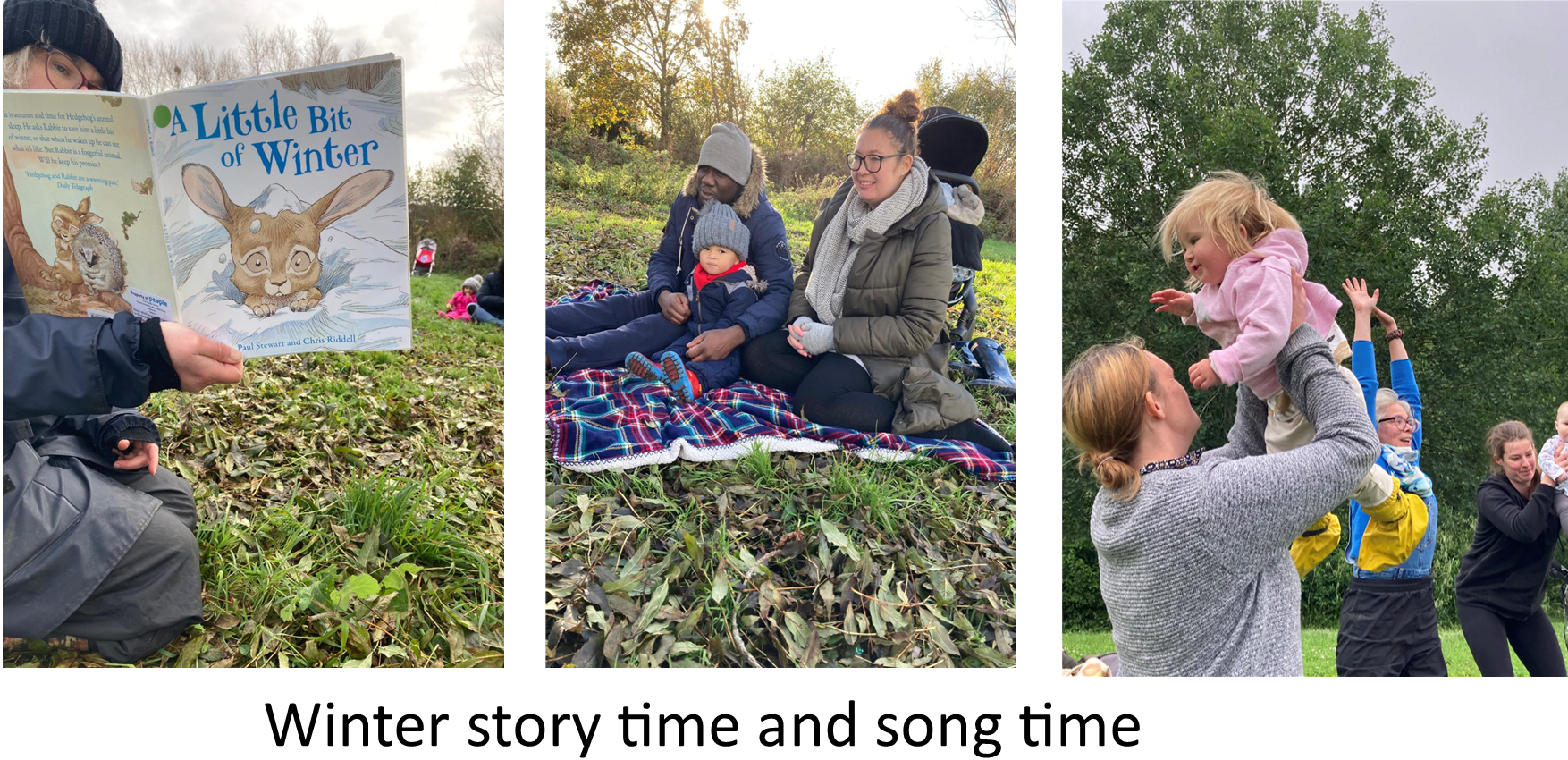
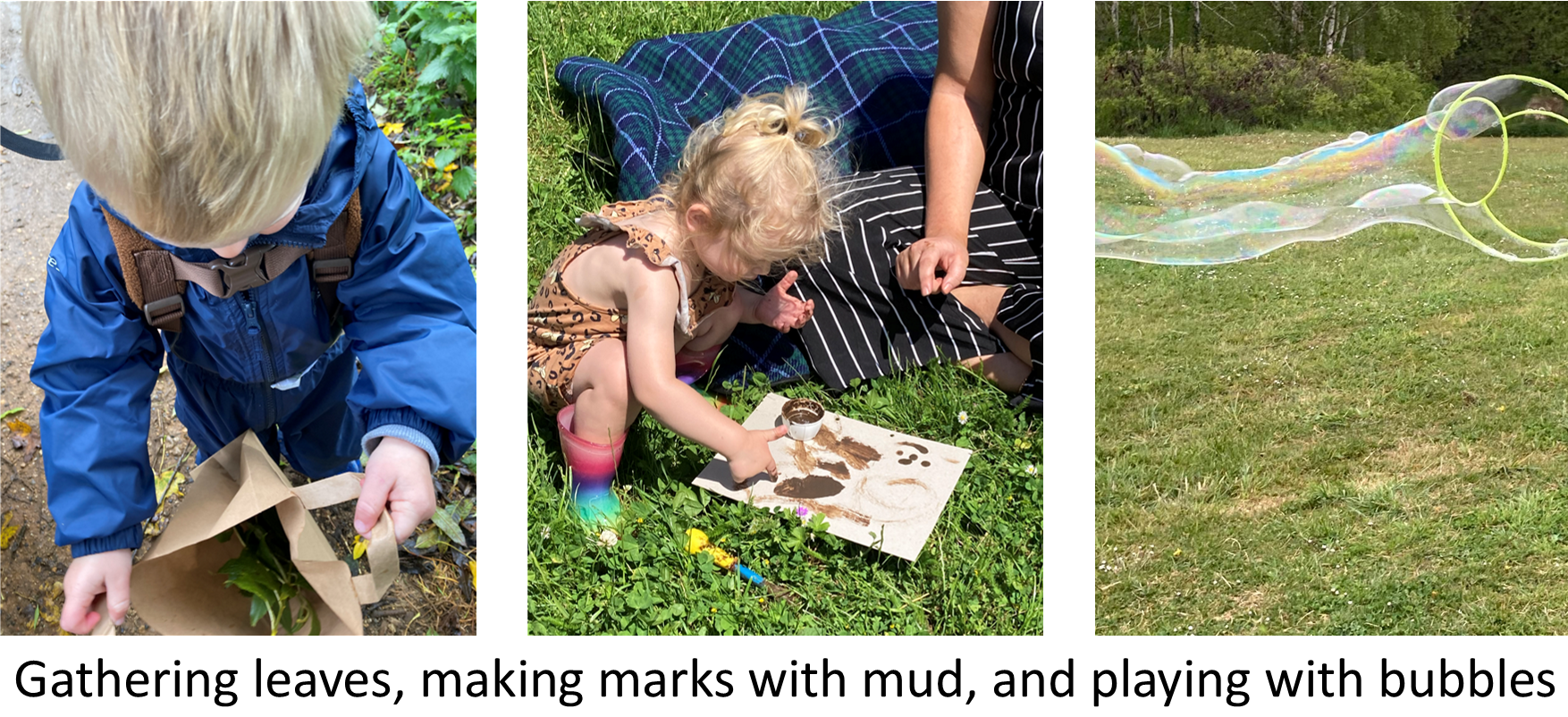
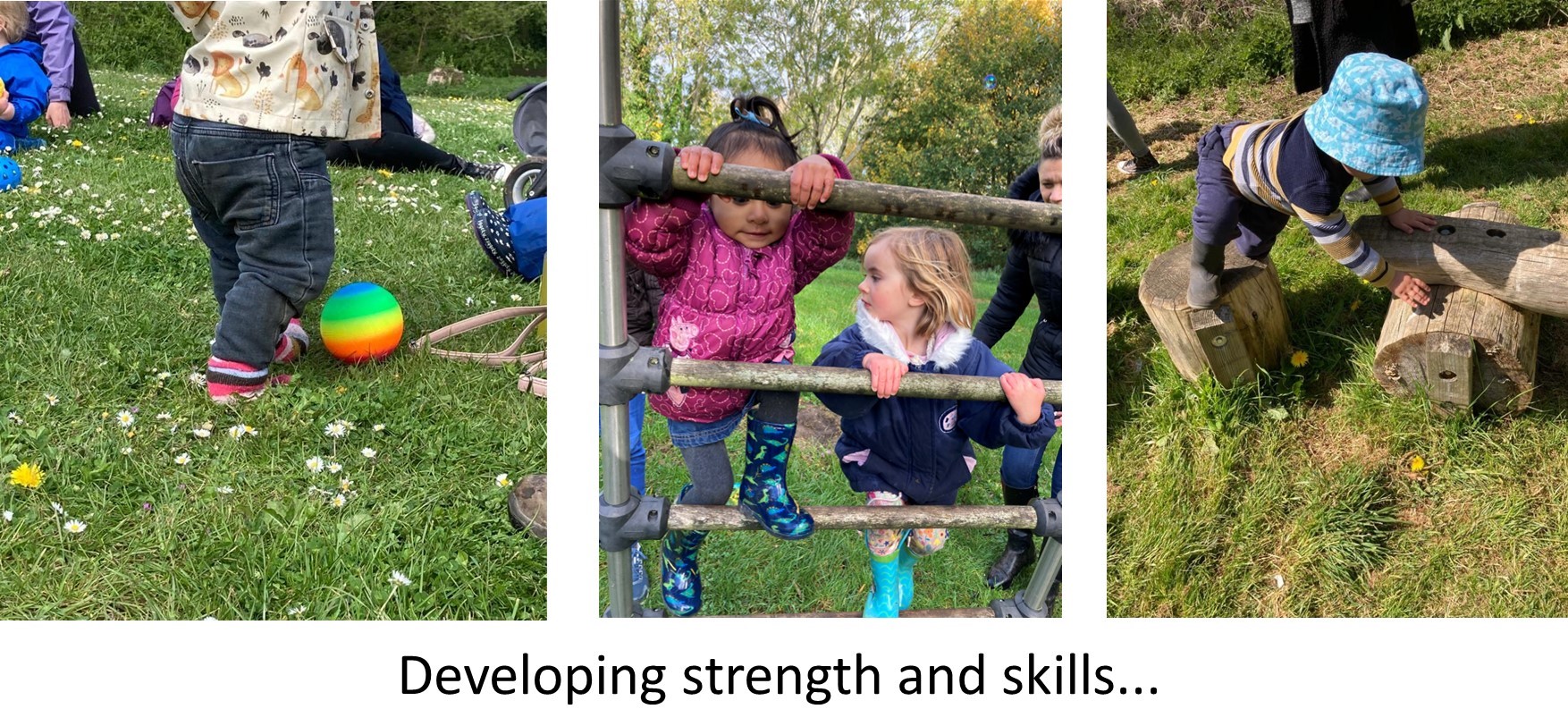
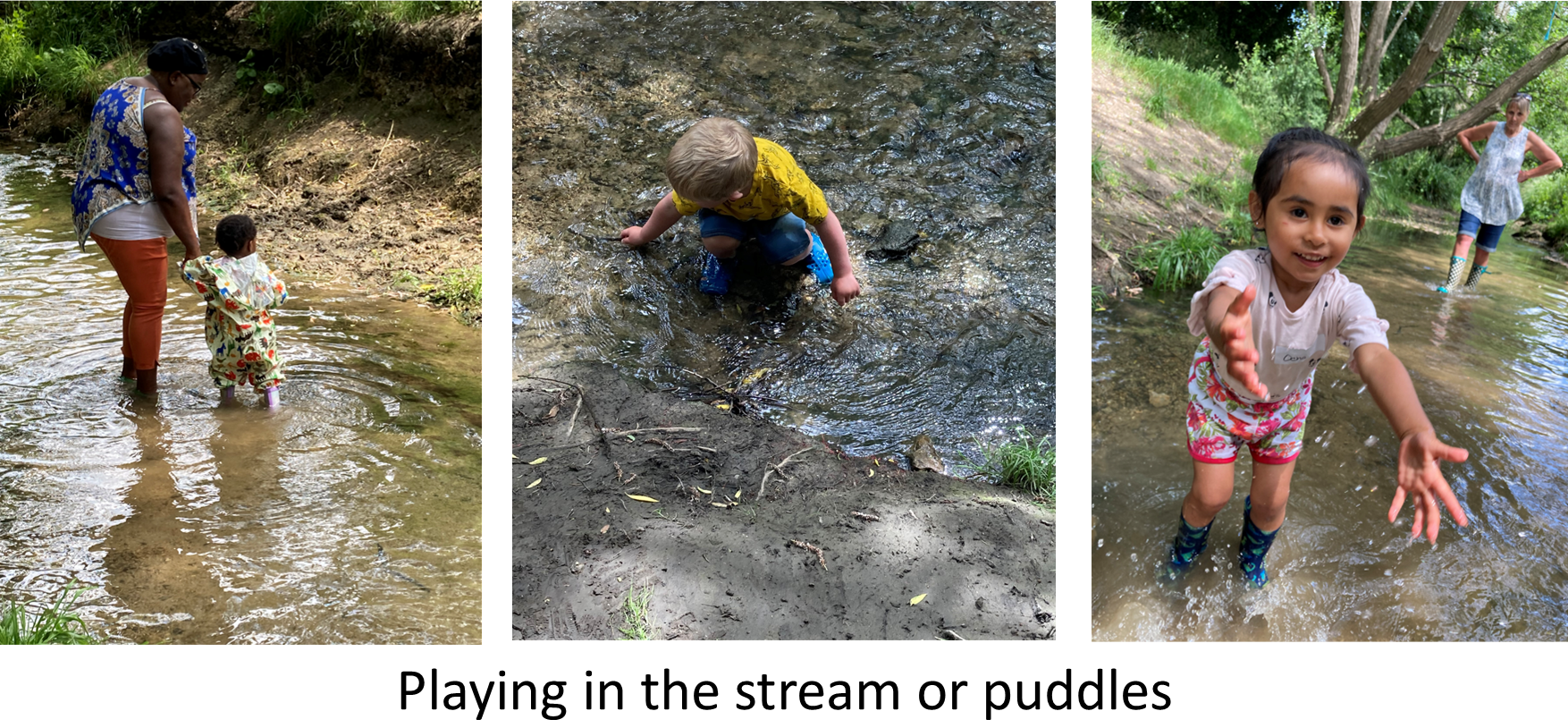
outdoor peep for families
Feature box colour:
Side Quote Color:
relationship and confidence building in Liverpool
This case study focuses on a Mum experiencing breastfeeding issues, anxiety and isolation, and her daughter Millie (not her real name; aged 2-11 months during the case study). The range of inter-linked support she received from Peep and other practitioners and families in her local Liverpool Children’s Centres highlights the value of such a connected, joined up approach.
How identified for Early Help:
Mum came in as a referral from the doctor, and wanted support with breast feeding. Mum was also experiencing other challenges that emerged during our conversations at the Children’s Centre (in italics below); the support we offered, and the impact for mum and daughter are described in the bullet points.
Support provided and impact:
Mum needed breast feeding support, as she could not get her baby Millie to latch on.
- Our Health Promotion Worker went out on a home visit to give her tips, and then Mum was able to breast feed confidently, using the techniques she had learnt.
Mum was a single parent, who felt quite isolated. Dad lives abroad and didn’t want any contact with Millie. Mum had never wanted a baby and when she fell pregnant she started feeling very anxious, which became worse when Millie was born. The doctor had mentioned medication, but Mum wanted to conquer her feelings on her own.
- Mum was encouraged to attend the Peep Baby Babble group, which she really enjoyed. At first she was quiet, but the friendly and supportive format of the group helped her confidence grow, and she started to join in the discussions more. Mum was anxious at first and didn’t want to put Millie down. With encouragement she gradually began allowing Millie to explore independently and her anxiety became much better.
- Baby Babble and encouragement from staff and other families acted as a stepping stone to trying other groups in the Centre, and she started attending both Baby Massage and the Stay and Play group regularly.
- Mum has made friends that she meets up with, outside of the Centre. She feels less isolated.
Strengthening relationships and understanding of how to support her child's development
Mum lacked confidence, as she wasn’t sure about child development and what milestones her baby should be meeting. This led to arguments with family members, when they made comments about Millie’s development. This also upset Mum and made her worry.
- Mum has a better understanding of Millie’s milestones, from what she has learnt during the Baby Babble Peep sessions. She’s enthusiastic about the help she has received and said what a difference the Centre and the Peep sessions have made to her life:
“I really enjoy coming to Baby Babble Peep and it has brought on my daughter so much. As a parent I feel this group has really helped me with my confidence and I have made friends. I look forward to what I will learn in our classes. I like the handouts we get too, and keep them in a memory box with all the things I’ve made with Millie during the sessions.” - We have covered topics during Peep when Mum has been concerned about aspects of Millie’s development, such as her speech and her physical skills. Mum said that this has made her more confident, especially when family members have made comments about Millie’s development.
- Mum has a better relationship with her family, as she can confidently say that she knows about Millie’s development, and challenge when family members comment that she is behind or she should be doing more.
Increasing mum's own confidence, learning and employability
Mum needed support in getting back to work. However, she was scared about leaving Millie with anyone else and was putting a lot of pressure on herself.
- Mum is attending a Confidence Building course at the moment, at one of our children’s centres, to develop her confidence further. She is due to attend a First Aid for babies and children course at the Centre.
- Mum attended the ‘Prepare to work’ course at the Centre before Christmas. She finished the course and really grew in confidence. To attend the course, Mum had to leave Millie in our crèche. Mum was really nervous at first and struggled leaving her on the first week. After Mum saw how happy Millie was when she picked her up, she was a lot less anxious about leaving her for the other weeks.
- With additional support from the ‘Ways to work’ Family Link Worker, Mum has a new job. She is now able to leave Millie with her own mum when she goes to work without feeling anxious.
Mum has gained so much confidence. She is a lot happier and her anxiety has reduced. This allows her to care better for Millie and cater for her needs. Millie is a happy little girl and she has developed a really good bond and attachment with Mum.
March 2019. Thanks to Children's Centre Practitioner S Kilty.
Feature box colour:
find out more or book training
tel 01865 397 970
training@peeple.org.uk
> programmes
> training courses
> dates & booking
> sign up to our e-newsletter
Side Quote Color:
Making the most of Mealtimes in the nursery and at home through a joint approach
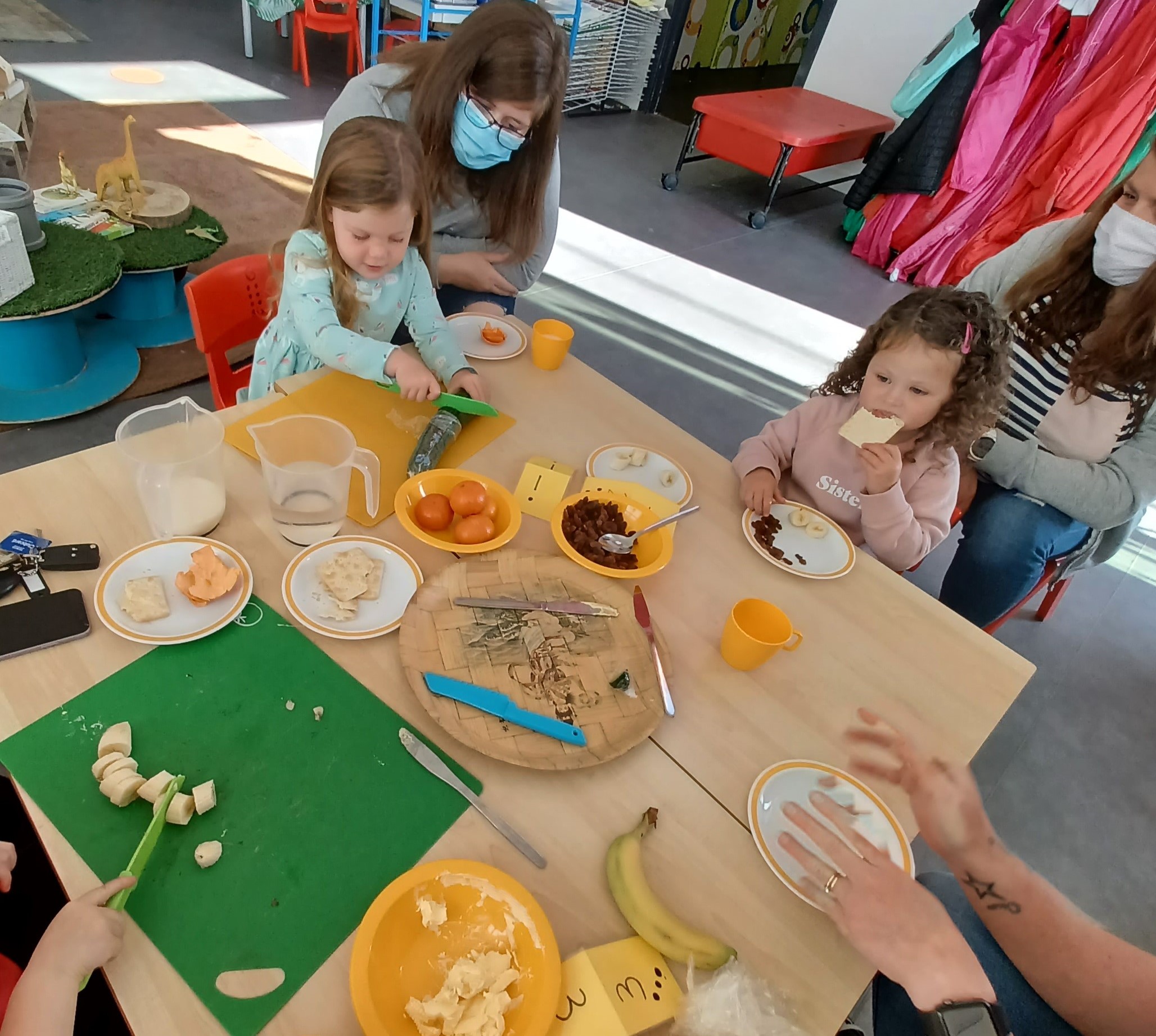 As an Early Years setting (Newton Park Nursery, Wick, Highlands), self-evaluation happens on a daily basis as we work to ensure the opportunities we provide for the children offer high levels of wellbeing and involvement. As Equity and Excellence Leads* we are fortunate to have the opportunity to observe, work with our team to implement changes and network across Scotland with other Equity and Excellence Leads to share good practice.
As an Early Years setting (Newton Park Nursery, Wick, Highlands), self-evaluation happens on a daily basis as we work to ensure the opportunities we provide for the children offer high levels of wellbeing and involvement. As Equity and Excellence Leads* we are fortunate to have the opportunity to observe, work with our team to implement changes and network across Scotland with other Equity and Excellence Leads to share good practice.
Mealtimes – creating an opportunity from a challenge
Through consultation with staff and our own observations it became clear that lunchtime was a stressful experience for all. Staff often felt that the process was rushed, and our own observations showed that the average time the children spent at the table was less than 10 minutes.
We reached out to Gemma Paterson and her team in Falkirk who had embedded the Marvellous Meals approach into a number of Falkirk settings. Their lunch times had a huge emphasis on a nurturing family approach, sitting together, rich conversation and promoting self-help skills.
Linking mealtimes to learning
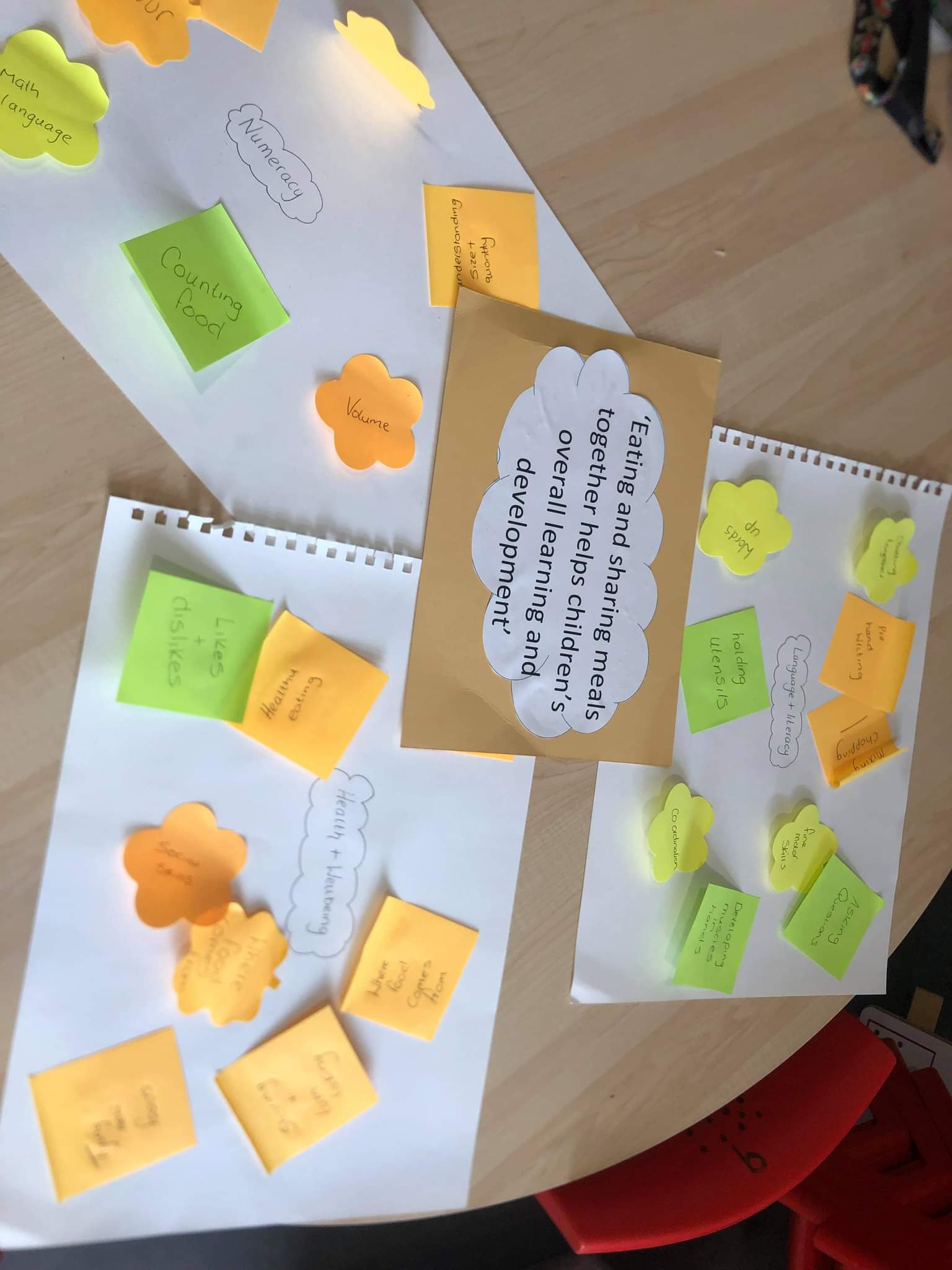 As we began to implement the changes within our setting we quickly realised the huge potential for learning meal times held in regard to speech and language, social development, self help and fine motor skills, as well as the opportunities it opened up for areas of the curriculum such as numeracy and literacy.
As we began to implement the changes within our setting we quickly realised the huge potential for learning meal times held in regard to speech and language, social development, self help and fine motor skills, as well as the opportunities it opened up for areas of the curriculum such as numeracy and literacy.
We began to think - if we as practitioners had not been fully aware of the potential meal times held then maybe our families were not either. Being recently Peep-trained (Peep Learning Together Programme), we were in a great position to reach out to our families to share our exciting project and talk to them about the benefits of a nurturing family mealtime.
We wanted to break the Marvellous meals project in to smaller more manageable chunks focusing on the different areas of learning that family meals times provide. The Peep topics ‘Making the most of mealtimes’, ‘Maths in everyday routines’ and 'Becoming a writer’ linked clearly with the learning that we were now seeing during nursery snack and lunches.
Inviting parents and carers to 3 Peep Marvellous Mealtime sessions
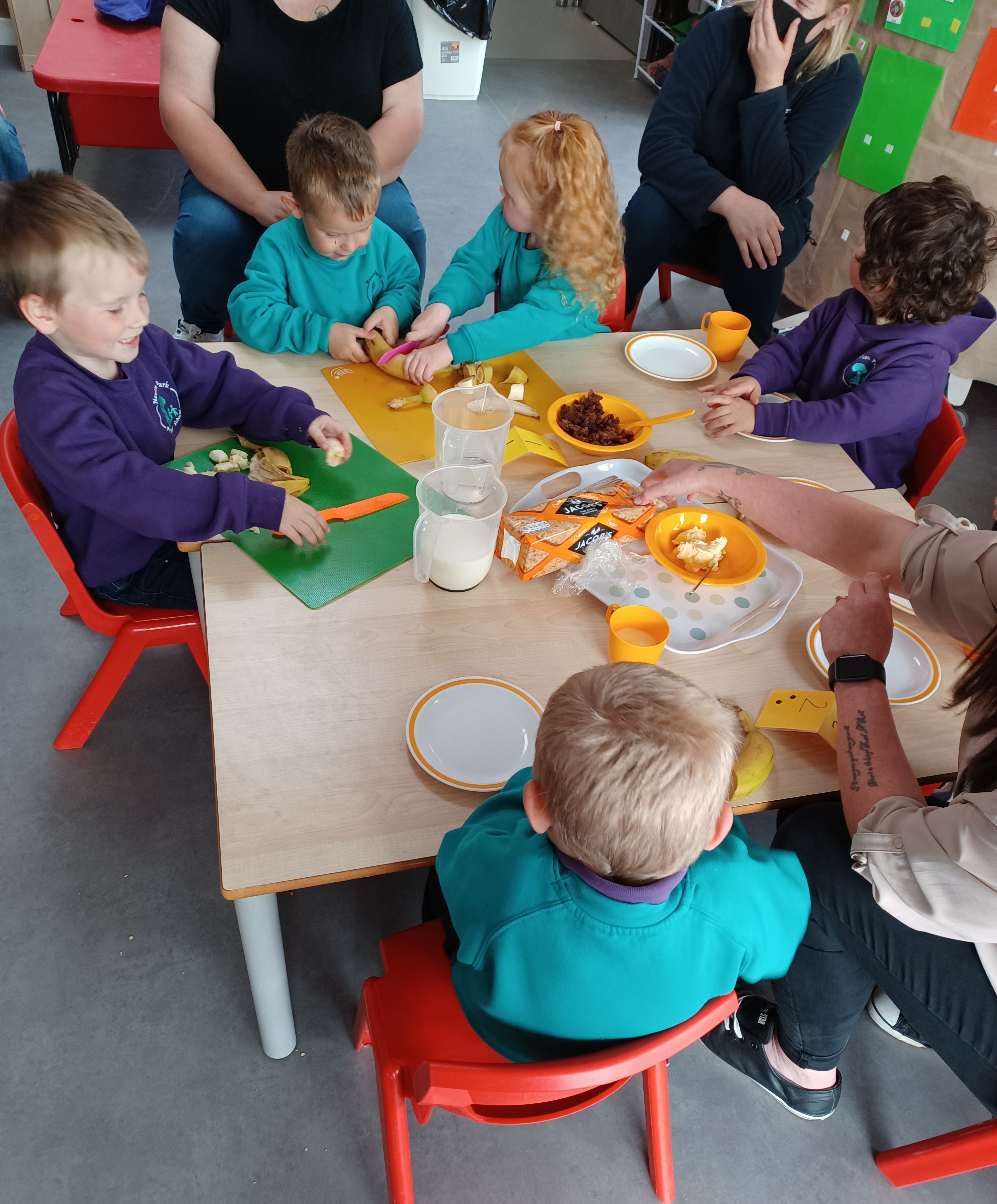 For many of our families this was the first opportunity to visit the setting and get an insight into nursery life in over a year, due to Covid 19. After putting out the invitations and using our ClassDojo as a platform to reach families, we received over 20 families signing up for the 3 planned sessions, a third of our current nursery intake.
For many of our families this was the first opportunity to visit the setting and get an insight into nursery life in over a year, due to Covid 19. After putting out the invitations and using our ClassDojo as a platform to reach families, we received over 20 families signing up for the 3 planned sessions, a third of our current nursery intake.
Taking this on board we felt that the best way to show our families the potential meal times hold for learning and development was to participate in sharing a meal exactly how we do in nursery.
We began the session by welcoming the families with a good morning song and a look at our visual time line. First, we sing good morning, then a special activity and last a story. We included ‘sit together for snack’ as our activity within the Peep ‘Making the most of meal times’ session plan, to give the families an insight into some of the wonderful skills the children were developing as part of the Marvellous meals approach.
Sharing ideas through activities and talk time
As the children washed their hands we introduced our message for the session: ‘Sharing and preparing meals together supports a child’s overall development.’ The families then sat and enjoyed a healthy snack together as the children demonstrated skills such as cleaning the table, washing hands, using real utensils to cut and spread, counting food as they served themselves and of course the rich conversation that happens so naturally at the dinner table.
During the activity as a group we discussed many of the skills we were seeing from the children and how they linked to the early years curriculum or supported the different areas of child development.
Sharing ideas through songs and storytime
Following the discussion we encouraged the group to come back together for a story and a song. We chose the story I don’t like peas which tells the story of a little girl refusing her peas and her mother’s attempts to bribe her. In the end of the story the little girl notices that her mum hasn’t eaten hers either! The moral of the story…. As parents and practitioners, meal times offer the opportunity for us to model many skills while developing children's language and communication.
Feedback and follow-up
At the end of each session we quickly chatted about the topic for the following week, allowing families time to reflect and bring forward any comments and suggestions to the next session. We also provided them with the corresponding PEEP handouts for reading at home, along with other relevant links such as the Highland Emerging literacy website to support and extend the activities within our session into the home environment.
Following the sessions, we asked for family feedback and how they had used the information from sessions in their home environment:
“It was an eye opener to see what my child was capable of at meal time.”
“I really enjoyed the Marvellous meals PEEP sessions, it was really interesting to see that everyday tasks such as chopping their own food and pouring their own drink held so much learning.”
“I had never really thought about how maths and writing skills can be taught at meal times.”
Child comment: “Is Mum coming to nursery again? I will show my brothers what I can do all by myself.”
Following each session we began to receive lovely photos via our ClassDojo app of the children at home developing their independence and helping prepare for meal times at home.
January 2022. Thanks to Equity and Excellence Leads and Peep practitioners Heather Shorrock and Natalie Mackay, and Peep co-ordinator Gillian Forbes
[ * The role of Equity and Excellence Leads is primarily focused on closing the attainment gap in nursery settings in Scotland’s most deprived areas. The EE Leads are teachers or early years graduates, working with the children (but not in the adult-child ratio) and their families, and helping to upskill fellow practitioners. Find out more in the Care Inspectorate findings report focusing on Equity and Excellence Leads (March 2021), including an example of Peep being used in a Dumfries and Galloway nursery.]
Feature box colour:
find out more or book training
tel 01865 397 970
training@peeple.org.uk
> programmes
> training courses
> dates & booking
> sign up to our e-newsletter
Side Quote Color:
Making a sensory bottle
These sensory bottles can be made more festive by adding sparkly or glittery things inside. They can also be a low-cost but treasured present - babies and toddlers don't know or mind how much things cost!
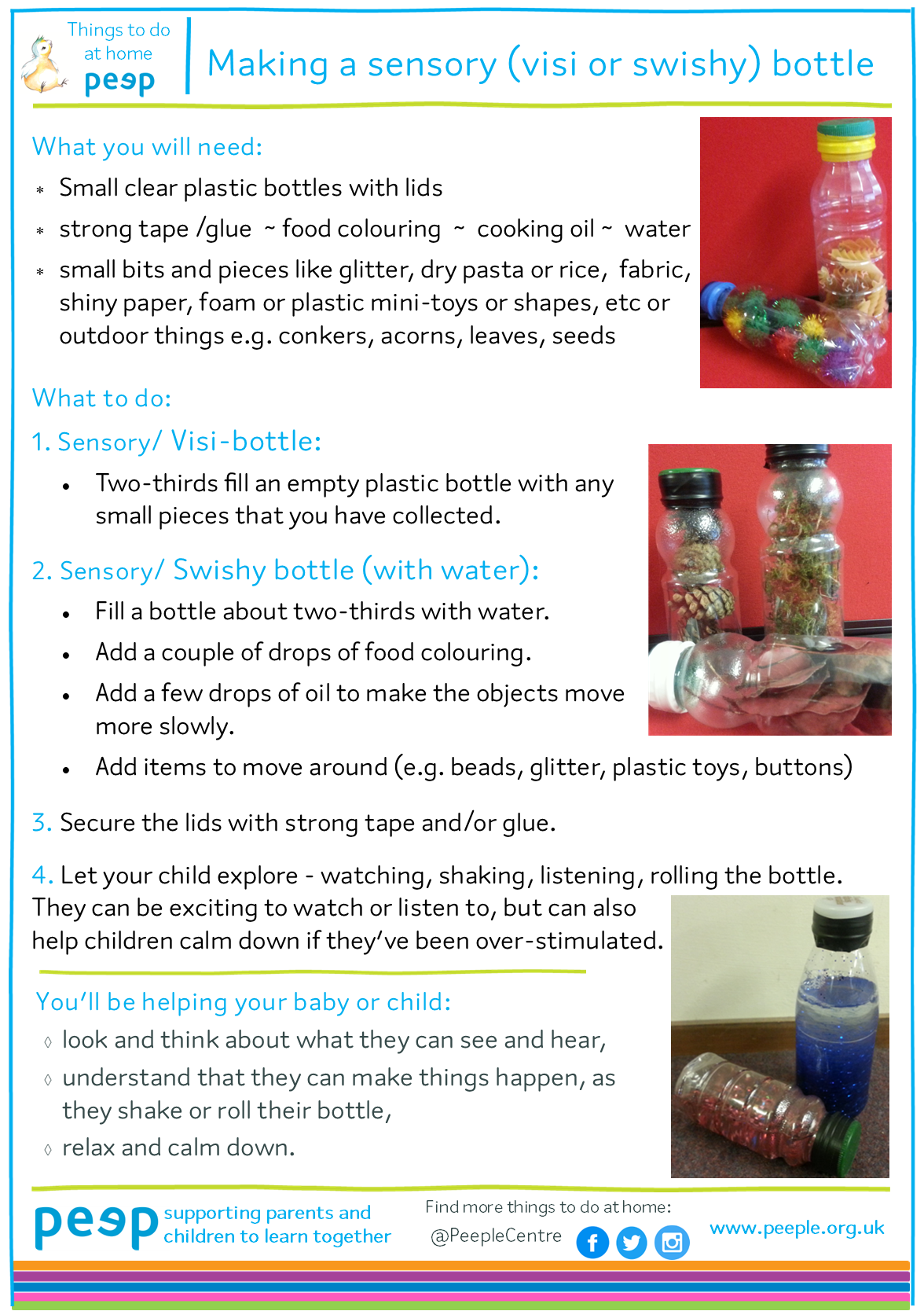
Feature box colour:
Side Quote Color:
sorting and matching at home
Sorting and matching encourages children to be curious and investigate their world. They'll also be learning about things that are the same, similar or different - and discover that the same things can be sorted in different ways (e.g. size, colour, purpose, etc).
